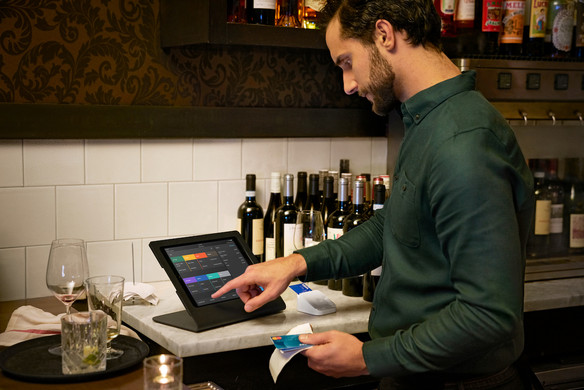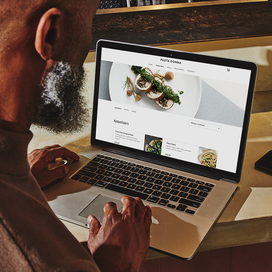Table of contents
If you want to open a business in Indiana that serves alcohol, it’s important to understand the requirements for getting a liquor license. Indiana is one of several states that caps the number of liquor licenses it issues. Depending on the type of license you want, if none are available in the area your business will operate, you may need to consider another location or get a license transferred to you from an existing liquor business.
A liquor license is essential when starting bars and breweries, and it can draw more customers to restaurants too. Serving alcohol can increase your bottom line — restaurants that sell liquor have about an 80% profit margin for every drink sold.
Serving alcohol is not always restricted to your physical space — many states, like Indiana, also allow businesses to serve liquor off premises through curbside pickup and alcohol delivery offerings.
The Indiana state government determines which businesses can get licenses to sell alcohol. Knowing what to expect when applying for an Indiana liquor license will make the process easier.
What type of business needs a liquor license in Indiana?
Indiana provides different liquor license types. Liquor stores need a license, but restaurants, grocery stores, hotels, and drug stores need a different beverage permit to sell beer, wine, and any other alcoholic beverages.
Some businesses that need specific licenses to sell alcoholic drinks aren’t as obvious, such as race tracks, gaming sites, social clubs, dining cars, and airports. The Indiana Alcohol and Tobacco Commission’s (ATC) website outlines the various licenses available to help you select the best fit for your business.
Are Indiana alcoholic beverage licenses available?
Once you’ve determined the type of license you need, you can contact an Indiana Alcohol and Tobacco Commission processor in person, online, or by phone to find out if a license is available in your area.
Contact information for the Indiana ATC is available on the website. The state legislature sets the quota on licenses based on the population of each city, so the number of licenses available differs only if the population changes significantly.
2 ways to get an Indiana liquor license
Regular liquor license application
If the type of license you need is available, the Indiana ATC will send you the application forms needed. You will need to have documentation showing you lease or own your business premises.
If licenses are not available in your specified area, you can try to buy the type of license you need from a current holder. The Alcohol and Tobacco Commission can assist by sending you a list of potential sellers to help you find a license. The fee for a liquor license varies based on the license type and business location, but often ranges from $500 to $2,000.
Transfer of ownership application
If you’re transferring an existing liquor license, you can ask the ATC for a “transfer of ownership” application. The ATC website outlines the additional documents you need to submit, including:
- A “consent to transfer” form from the current license holder
- Four copies of the floor plan that are signed and dated
- Any articles of incorporation
- A signed lease or documentation proving you own the business
- Property tax clearance from the country treasurer
- “Transfer of location” application for the new business location
When you are ready to proceed, contact the Alcohol and Tobacco Commission and request the needed forms. Walk-in appointment information, commissioners’ phone numbers, and an email contact form are all accessible on the website.
How long does it take to get an Indiana liquor license?
The Indiana ATC indicates that the application process can take 10 to 12 weeks. This process includes:
- Turning in the forms and fee (Your fee is determined by the type of license you’re applying for and where your business is located.)
- Going before the local alcoholic beverage board to seek their recommendation
- Voting on the local board recommendation by the ATC’s statutory meeting, which is held once a month. You will need to attend while your permit request is considered, and area residents can attend to support or object to your permit.
- Having a final inspection of the business by the State Excise Police.
This diagram from the ATC outlines the typical application process for Indiana liquor licenses. A renewal of an approved liquor license can take between 8 to 10 weeks.
Employee permits for staff serving alcohol
Your business needs a license to sell and or serve alcohol, and your employees may also need an employee permit. Bartenders, wait staff, and clerks in packaged-good stores must get an employee permit to serve alcohol. Note that employees 19 and 20 years old have restricted permits, limiting the type of alcoholic beverages they can serve and where they can serve them.
New employees who need to get a liquor license must complete a server training program within four months of being hired.
The Indiana ATC offers a free online certified server training program that reviews liabilities associated with the sale of alcoholic beverages, how to recognize fake IDs, and how to address serving alcohol to intoxicated customers.
Please note that the information contained in this article is limited in scope and is only intended as a high-level overview of the topics discussed. The information is current as of the publication date only, and the laws (and associated agency and/or judicial interpretations) on the topics discussed could change at any point in the future. Block, Inc. (including its affiliates, subsidiaries, employees, officers, directors, attorneys, and tax advisors) undertakes no obligation to update this article for future changes in the law. In addition, laws vary by jurisdiction, and this article does not attempt to address all jurisdictions — for example, states, counties, or cities often have requirements that differ from federal law. Nothing in this article is or should be used as tax or legal advice. In particular, this article cannot be relied upon for the purposes of avoiding taxes, penalties, or other obligations under applicable law. For guidance or advice specific to your business, you should consult with a qualified tax and/or legal professional.
![]()












